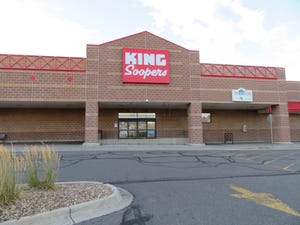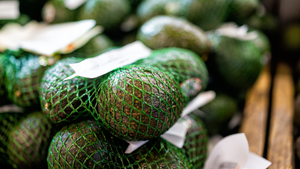Hyper-personalization is the future, according to grocersHyper-personalization is the future, according to grocers
Most grocery retailers say marketing will be hyper-personalized

TOP TAKEAWAYS
87% of grocery retailer executives say the marketing of groceries will become hyper-personalized
Four in-10 executives see store-managed food production (such as vertical farming) for most of their stores in the next five to 10 years
Grocery executives expect technology to enable reduced or no checkout experiences (66%); hyper-personalized, guided shopping (65%); and tailored experiences and sampling for individual customers (63%)
New data from a survey of grocery retailers reveals what the future of grocery might look like: it will be hyper-personalized. That’s according to 87% of the executives surveyed and indicates a market shift from selling to the “average consumer” to a more individualized approach.
The Deloitte findings say that grocery is “about to get personal.” In the next five to 10 years, grocery executives expect technology to enable reduced or no checkout experiences (66%); hyper-personalized, guided shopping (65%); and tailored experiences and sampling for individual customers (63%).
In addition, almost half of executives see national-brand CPG partnerships becoming less important over time as they add more store-branded offerings and CPG companies explore more direct-to-consumer offerings, where the results urge CPG partners to find a new model.
Also in the next decade, four-in-10 executives see store-managed food production (such as vertical farming) for most of their stores.
In terms of the workforce, 84% of the grocers surveyed think that the store associate experience needs to be as good as the consumer experience.
Deloitte outlined six forces that are disrupting the nature of the grocery business:
The changing consumer: Understanding and targeting shifting consumer meal planning, locations, trips, and missions will likely be important to the growth of the grocery industry
Evolving society and culture: How grocers organize sales into occasions and where they find the needed people and skills to serve those occasions is changing
Exponential xTech: Every company is becoming a technology company
Radical industry upheaval: Industries are converging, and consumers have a wider range of companies and offerings competing for their limited wallets, however, grocery is advantaged as people continue to need to eat no matter what
Extreme climate and planet: In general, the grocery and food industry may be compelled to revisit their contributions to deforestation, energy usage, and consumer waste and seek more sustainable approaches to business
Shifting economics, policy, and power: Tariffs, shipping constraints, and war have disrupted international food supply chains
Grocers should determine their future markets — what is sold, who it is being sold to, and what products and services create value, said the study. “With a more diverse and differentiated consumer base and the technological innovations to enable it, we see a future of grocery that moves from mass to micro.”
About the Author
You May Also Like






